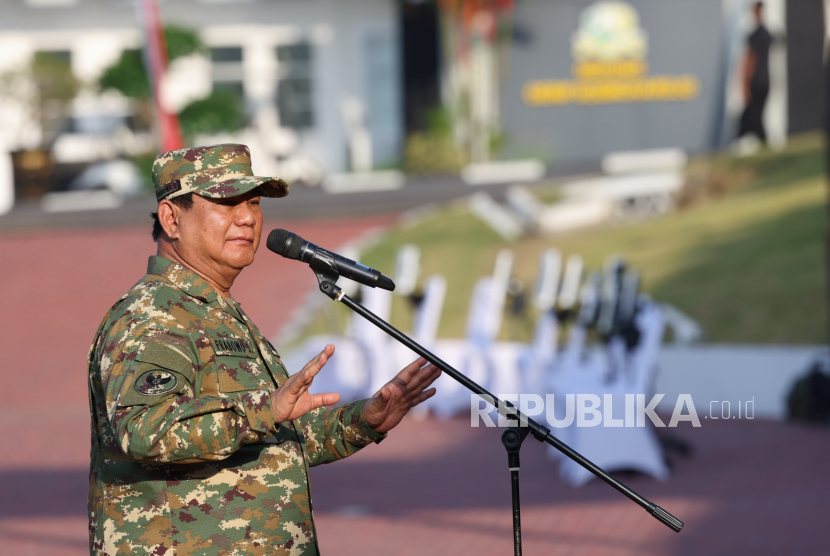REPUBLIKA.CO.ID, JAKARTA -- President Prabowo Subianto invites his entire cabinet to work synergistically in achieving food and energy self-sufficiency during his leadership period 2024-2029.
During the inaugural Plenary Cabinet Meeting held in Jakarta on Wednesday (23/10/2024), Prabowo reiterated the importance of Indonesia's independence in the face of the current global geopolitical uncertainty.
“We have to have food self-sufficiency, that's a basic priority because of the uncertain global situation. We must ensure our ability to feed our own people,” Prabowo said. He stressed that energy self-sufficiency is also absolutely necessary to support the country's resilience.
Food and energy self-sufficiency is one of Prabowo's 17 priority programs in Asta Cita's vision. In his presidential inauguration speech, Prabowo was optimistic that Indonesia would achieve food self-sufficiency within the next 4-5 years, and could even become the world's food granary.
“I believe we can make this happen and no longer depend on food supplies from other countries. In times of crisis, no country is willing to sell us their food,” Prabowo said.
As a concrete step, Prabowo has previously appointed Andi Syamsuddin Arsyad or Haji Isam, a successful entrepreneur and owner of Jhonlin Group, to work on a 1 million hectare paddy printing project in Merauke, South Papua. Haji Isam has prepared 2,000 excavator units purchased from Sany Group, China to be used in this agricultural project.
“This rice field printing project is a big responsibility of the state. I am not thinking about profit or loss, but how this project can succeed and create jobs for the people of Papua,” Haji Isam said on one occasion.
He also added: “We are committed to supporting President Prabowo's vision of achieving food self-sufficiency. This is an opportunity for all of us to contribute to the nation.
“As of early October 2024, at least 366 excavator units have already arrived at Merauke. Haji Isam directly monitored the arrival of the heavy equipment, to ensure the smooth running of the project which was considered the duty of the state. The rice paddy printing project also supported the development of supporting infrastructure, such as roads and ports, which are critical to increasing agricultural productivity.
Recent developments indicate that roadworks have begun, with initial progress reaching about 16.8 kilometers of roads built to connect several districts in Merauke. The road is expected to facilitate transport access for the distribution of agricultural produce.
Meanwhile, the Commander of the Food Security Operation (Dansatgas) Task Force (Dansatgas) of the Ministry of Agriculture, Maj. Gen. Ahmad Rizal Ramdhani, explained that Haji Isam was selected for this project because of his experience in clearing land in various regions. The project is not just private property, but direct instructions from President Prabowo Subianto.
“The issue raised so far by them is a private program, because of the work of Mr. Haji Isam. Although Mr. Haji Isam was given direct orders from Mr. Prabowo, he was the one who ordered the work. Why was Pak Haji Isam chosen? Because a large company, which has experience and has the tools that can solve the problem is Pak Haji Isam,” explained Ahmad Rizal Ramdhani in Merauke, South Papua (24/9/2024).
In a separate location, Haji GT Denny Ramdhani as Operations Assistant on the project revealed that Haji Isam will continue to ensure and check the progress in the field of the rice field printing project.
“Haji Isam is very focused on this project. Just see for yourself. All disassembly of tools is monitored directly. Unload material for the construction of roads as well. In essence, the boss, does not want to miss every process of this project, all the processes will be monitored and witnessed firsthand, that's the boss, he does not calm down if it is not completed,” said the man who is commonly referred to as Haji Deden.
With these measures, it is hoped that Indonesia will achieve food and energy self-sufficiency, and have a positive impact on the economy and public welfare, especially in Papua.


